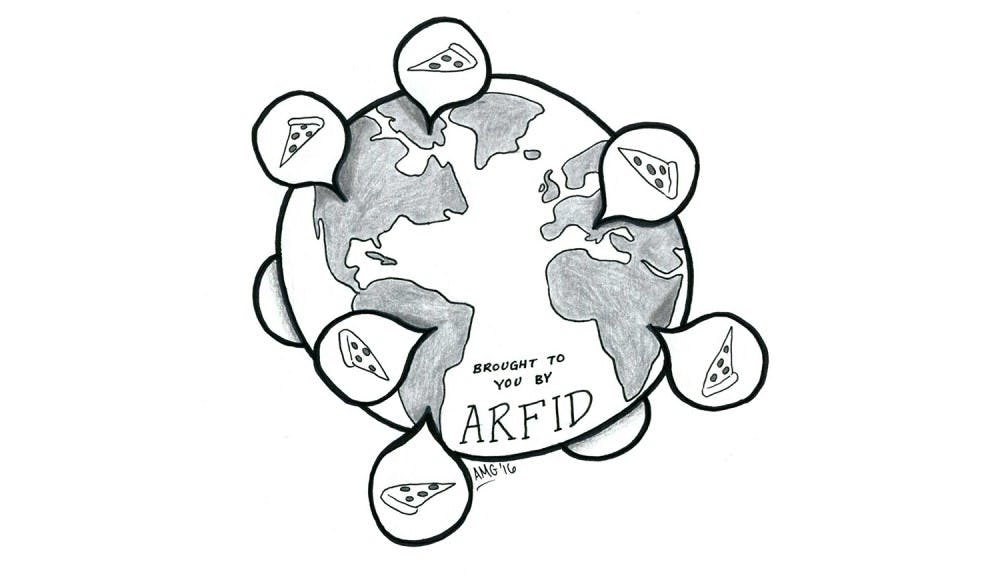I have never eaten a vegetable. Almost any other person my age wouldn’t be able to name every food they’ve ever consumed. But for me, it’s simple. I have survived for my entire life off of nothing but pizza (specifically just cheese or pepperoni), macaroni and cheese, buttered pasta, chicken fingers and a few desserts. The idea of even touching another food almost makes me throw up.
I have a rare eating condition known as Avoidant/Restrictive Food Intake Disorder (ARFID). By definition, ARFID limits what someone can eat based off of food characteristics such as color, smell, taste or texture. Typically it is caused by traumatic experiences during childhood that occur while eating, such as choking or, in my case, consistently throwing up during childhood as a side effect of my epilepsy.
I have become accustomed to usually only eating once per day—normally around 1 a.m., when I finally get hungry. When I’m on campus, I rotate everyday between double–toasted chicken fingers with a side of mac and cheese from Wawa and a pepperoni pizza from Allegro. The workers at Wawa start making my order as soon as I walk in.
Whenever I reveal my condition to someone, their initial reaction is to start asking about other common everyday foods, like PB&Js or hamburgers. My response is the same: No, I don’t eat that. No, not that either. Nope, also not that. But what most people don’t think about is how much my condition affects me beyond the table.
I never went to sleep–away camp as a kid; I wouldn’t be able to live off the food a camp provides. While my closest friends were away, I stayed alone at home. I’ve gotten used to that isolation. In fact, as I sit here writing this, my parents and sister are out at brunch together, while I’m sitting in my apartment. There’s nothing on the menu for me to eat. And while I’m very secure about my friend group, it’s still disappointing when I tag along to restaurants and can’t eat with them, or when I don’t go at all. My friends have adjusted to my eating habits, but dating brings along its own complications — how do you tell a girl you can only take her to pizza places?
I’ve learned to deal with the social problems over time, but there is still one major misunderstanding that bugs me every day: my label as a “picky eater”. This term implies that I am able to pick what I eat, but this is not the case. I recognize that my condition is hard to understand, but there are few things that annoy me more than when someone tells me to “just eat it.” That’s like telling a person with ADHD to “just focus and pay attention.” It’s not that easy.
This is not a lifestyle that I chose. I have tried many different forms of treatment, from hypnosis to cognitive behavioral therapy, but I haven’t found the right match. I would love nothing more than to be able to go to a restaurant with my friends without having to check the menu beforehand. I would love to go out with my family and know that I’m not forcing them to eat Italian when they would all rather have Asian. I would love not to have to worry about my health every day.
But with all that said, I don’t want people to feel bad for me. My condition is an unfortunate circumstance, but I’ve learned to make the best of it. I’ve found ways to take advantage of my pizza expertise, to have fun with it. Within the past three years, I’ve travelled to 25 countries, looking around for the best pizza place in the world. On random weekends during the school year, I have flown to San Francisco just to get a pizza. And while that may sound absurd, there are few things I relish more than these trips.
My condition has given me a unique perspective on the world. I take pride in the fact that my friends studying abroad text me for pizza recommendations in various countries. I love that it has come to define me and given me an identity that people automatically associate with me. So even though I would not wish ARFID upon my worst enemy, I can’t imagine my life without it.

